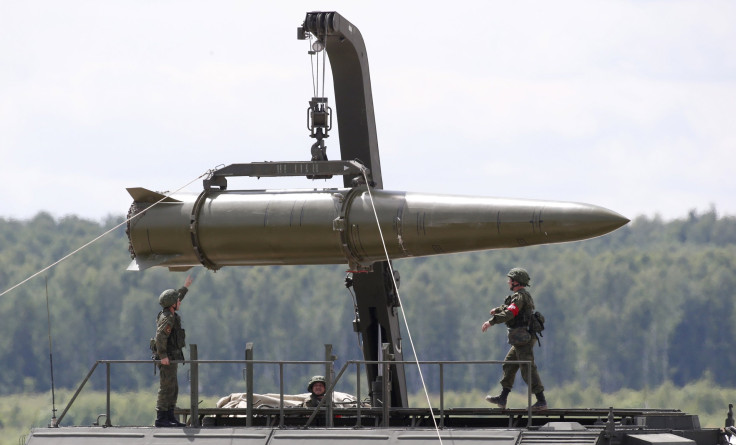Russia Threatening Nuclear Standoff In Europe? Moscow Vows Countermeasures Over Pentagon's Plan To Increase Atomic Stockpiles

Russia has vowed to take countermeasures against the Pentagon's decision to station new nuclear weapons inside Germany's territory, Kremlin spokesperson Dmitry Peskov told reporters in Moscow Wednesday. The U.S. move, which Peskov claims will build tensions and create imbalance inside Europe, comes amid building animosity between Russian and the U.S.-led West over Moscow’s actions in Ukraine and its military's continual probing of Europe's skies and international waters.
“This is yet another step -- and unfortunately, a very serious step -- toward antagonizing the tenseness on the European continent," said Peskov, according to a report from the Russian state news site Sputnik. "Of course, this may lead to a strategic imbalance in Europe, and...this will make Russia take according steps and countermeasures to establish parity because, naturally, this is not a step toward boosting stability, increasing trust or providing security in Europe."
German media reported Tuesday that the U.S. Air Force would station a minimum of 20 B61-12 nuclear bombs in Germany moving into the third quarter of 2015, as per a defense budget decision made last year.
The U.S. already has nuclear weapons inside Europe as part of a NATO-sharing program. While the countries involved -- Germany, Belgium, the Netherlands, Italy and Turkey -- are technically non-nuclear states, they store, maintain and provide the means to deliver the weapons on behalf of the U.S. military.
While Russia hasn't specifically laid out what countermeasures it will take against the introduction of new nuclear weapons in Europe, it's highly likely to involve Moscow's enclave of Kaliningrad on the Baltic coast, according to a Reuters report. The base, which is strategically positioned between Poland and Lithuania, offers ships and submarines unchallenged access from Russia's Northern ports into the Baltic Sea and to the Atlantic Ocean. It is also a strategic location for placing short-to-medium range Iskander ballistic missiles that are able to target almost any area of Europe.
Russia claims that the U.S. move will contravene the nonproliferation treaty of 1970 that is designed to stop the spread of nuclear weapons. Peskov added that the steps taken by Moscow were for the "provision of national security” in Russia.
© Copyright IBTimes 2024. All rights reserved.






















